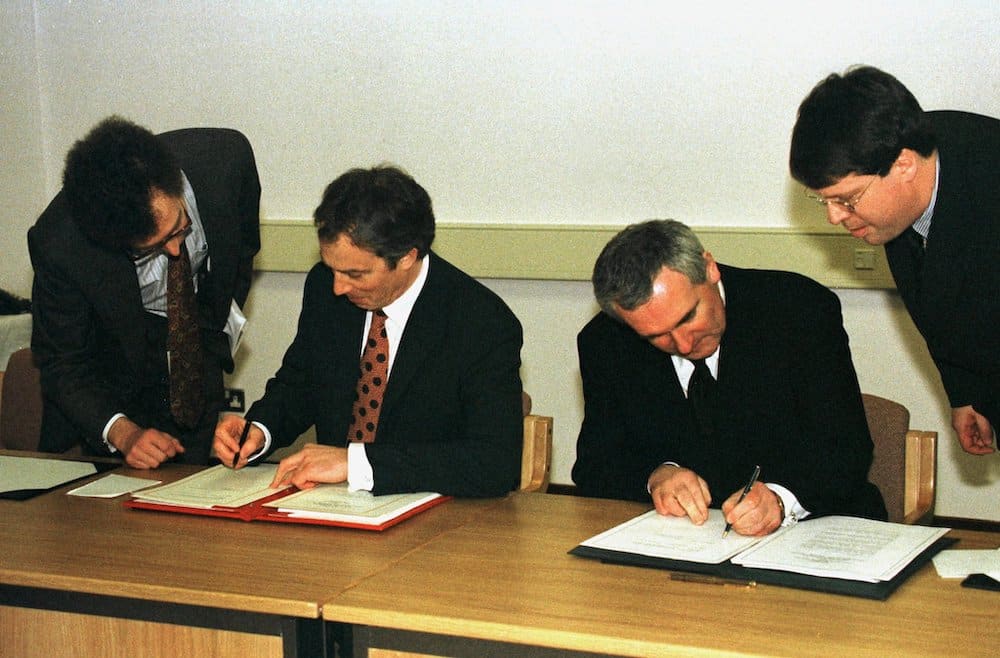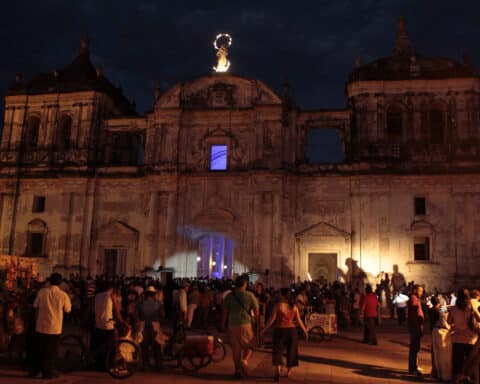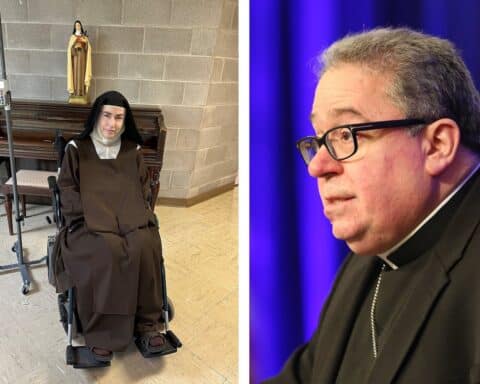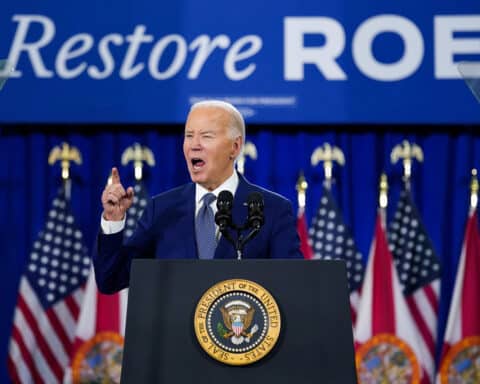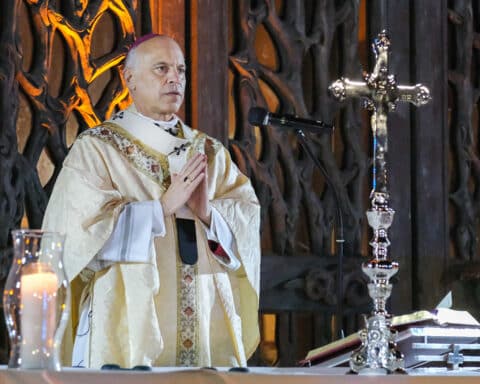DUBLIN (OSV News) — Prayers will be said at Masses and other religious ceremonies across Ireland and Northern Ireland this Easter weekend to give thanks for 25 years of peace marking the anniversary of the Good Friday Agreement.
Signed on April 10, 1998, the accord brought an end to 30 years of sectarian violence known as “the Troubles,” which resulted in the deaths of over 3,600 people and left approximately 47,000 with life-changing injuries.
Among guests arriving in Belfast to mark the anniversary is U.S. President Joe Biden. He will be joined by former U.S. President Bill Clinton, whose late-night interventions are credited with helping leaders to secure a deal 25 years ago when many expected the talks to collapse.
In a statement to mark the anniversary, the Church Leaders’ Group — comprising the Catholic Church, Church of Ireland (Anglican), the Methodist Church in Ireland, the Presbyterian Church in Ireland and the Irish Council of Churches – described the signing of the historic accord as “not the end of the journey to peace in Northern Ireland but marked simply the first faltering steps down a very long road to a new, brighter, and shared future.”
“That road will continue to be shaped by tolerance and respect for our differences, and a recognition of the need for greater understanding and reconciliation,” the leaders said.
“In the journey from Good Friday to Easter, from death to new life, the message of the Christian faith is a belief that love is stronger than hate and that the light of hope shines brightly in the darkness,” they added.
The 26 southern counties of Ireland gained independence from Great Britain in the 1920s, but the six counties of the northeast remained part of the United Kingdom. The region’s Catholic minority at the time, who wanted Northern Ireland to unite with the rest of the island and form one country, faced discrimination in terms of voting rights, housing allocation and fair employment.
The Protestant-dominated parliament in Belfast rejected calls for reform in the 1960s, and violent attacks on Catholic civil rights demonstrators by security forces sowed the seeds of the conflict that began in 1968.
The 1998 agreement acknowledged that the right for the region to remain part of Britain or join a united Ireland were equally valid political aspirations, and it committed all sides to pursue their ends by purely peaceful means.
It also established a cross-community power-sharing government, which is obligated to make decisions supported by the majority of both the Protestant and Catholic communities.
However, 25 years of reconciliation has proved elusive. Primate of All-Ireland Archbishop Eamon Martin told OSV News that “the agreement was never intended to be an event, or an end in itself.”
“Despite the huge leap forward in 1998 with the taking of the gun and bomb out of politics — and subsequent decommissioning, demilitarization, reform of policing and justice, and addressing of the prisoners issue — there remains too much anger, resentment, pain, distrust and blame within and between our communities,” he said.
The primate of All-Ireland, whose see is in Armagh, Northern Ireland, and is considered the successor of St. Patrick, pointed to the fact that almost a thousand sectarian hate crimes continue every year in the region.
“Too many communities are still barricaded off from each other behind so-called ‘peace walls’,” he said. “In neighborhoods with multiple deprivation, including the highest levels of child poverty and destitution, self-harm and suicide — those very communities which were most impacted by paramilitary activity and security force presence during the conflict — there is little to celebrate by way of a peace ‘dividend.'”
“Our inability, and perhaps even our unwillingness, to decommission mindsets, and find a way of sensitively healing the wounds of the past, has prevented us from achieving the kind of conflict transformation envisioned” in the agreement, Archbishop Martin told OSV News.
He said that he believes that the Christian churches can play a role in aiding further normalization.
“We in the churches have a significant part to play in building reconciliation.”
A key part of this, according to Archbishop Martin, is honestly facing the past with some sort of truth and reconciliation process.
“The building of a more reconciled community means confronting the scandal of sectarian violence, asking forgiveness for the crimes, bloodshed and strife that were often fueled by a distortion of religious terms, symbols, occasions and labels,” he said.
“As divided communities, and churches, we have not yet substantially reflected openly and honestly on the hurts and grave wrongs of the past — not only the relatively recent past conflict, but also the deeper generational wrongs and traumas that lie underneath, unaddressed, and in a sinister way continuing to drive much of the sectarianism that we see today,” Archbishop Martin stressed.
“The work of reconciliation is compulsory for Christians,” he told OSV News.
Martin Mansergh was an adviser to the Irish government during the peace process and acted as an intermediary between politicians and the paramilitary organizations. Twenty-five years on, he told OSV News that the accord remains “a landmark in Irish history.”
“Whatever the persistent problems or deficiencies of the Good Friday Agreement, a return to violence has to be avoided,” he said.
Mansergh also paid tribute to the work of Catholic priests in bringing about the ceasefires.
“The peace process for me is personified by Redemptorist priest Father Alec Reid, along with Father Gerry Reynolds.”
“Father Reid’s motivation was explained to me at meetings on many occasions over the years. He felt the Church had a responsibility to bring the awful cycle of killings to an end. His concern was about the next person who was going to get killed. He knew the history and the injustices that had to be addressed, if there was to be any settlement,” Mansergh told OSV News.
Father Reid, who later supervised the decommissioning of paramilitary weapons as part of the peace deal, died in 2013 and was widely hailed as the “midwife of the peace process”.
Michael Kelly, editor of The Irish Catholic, writes for OSV News from Dublin.

